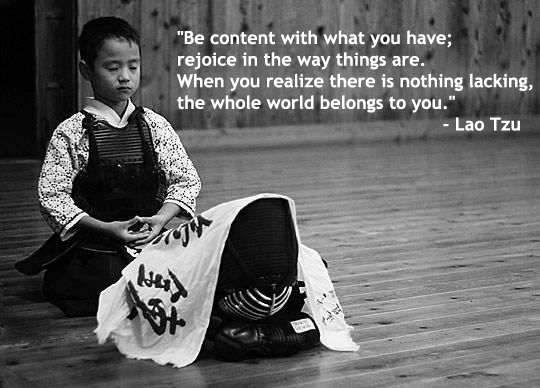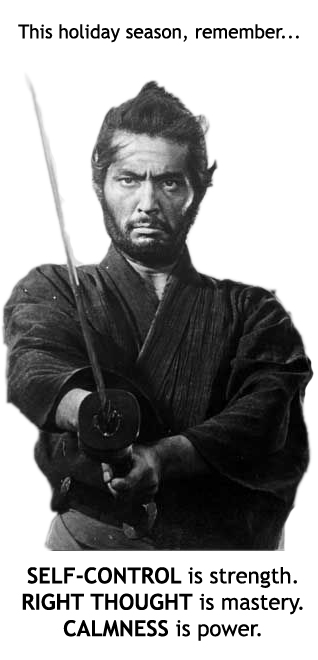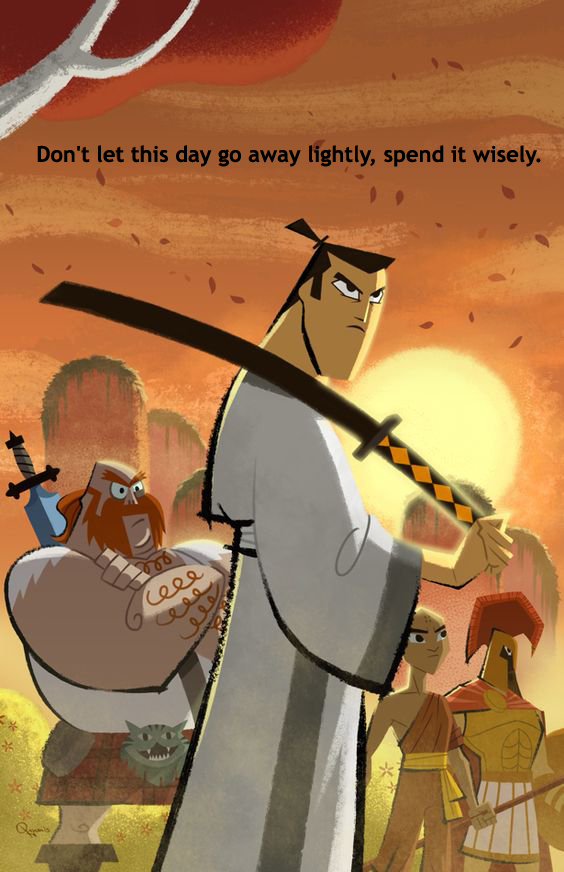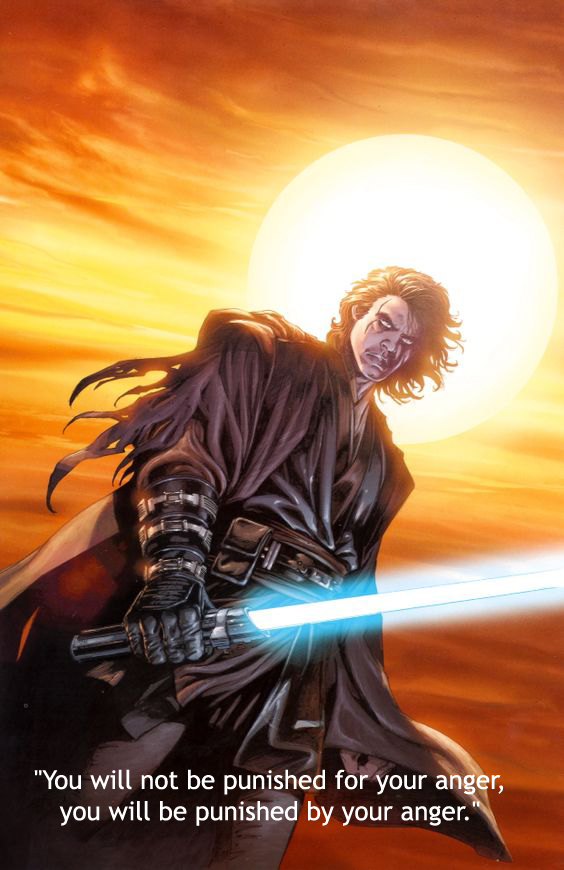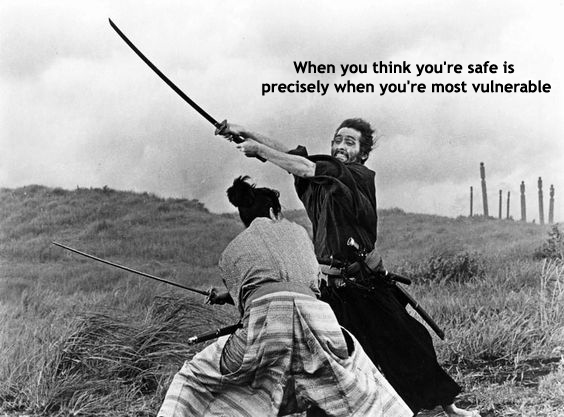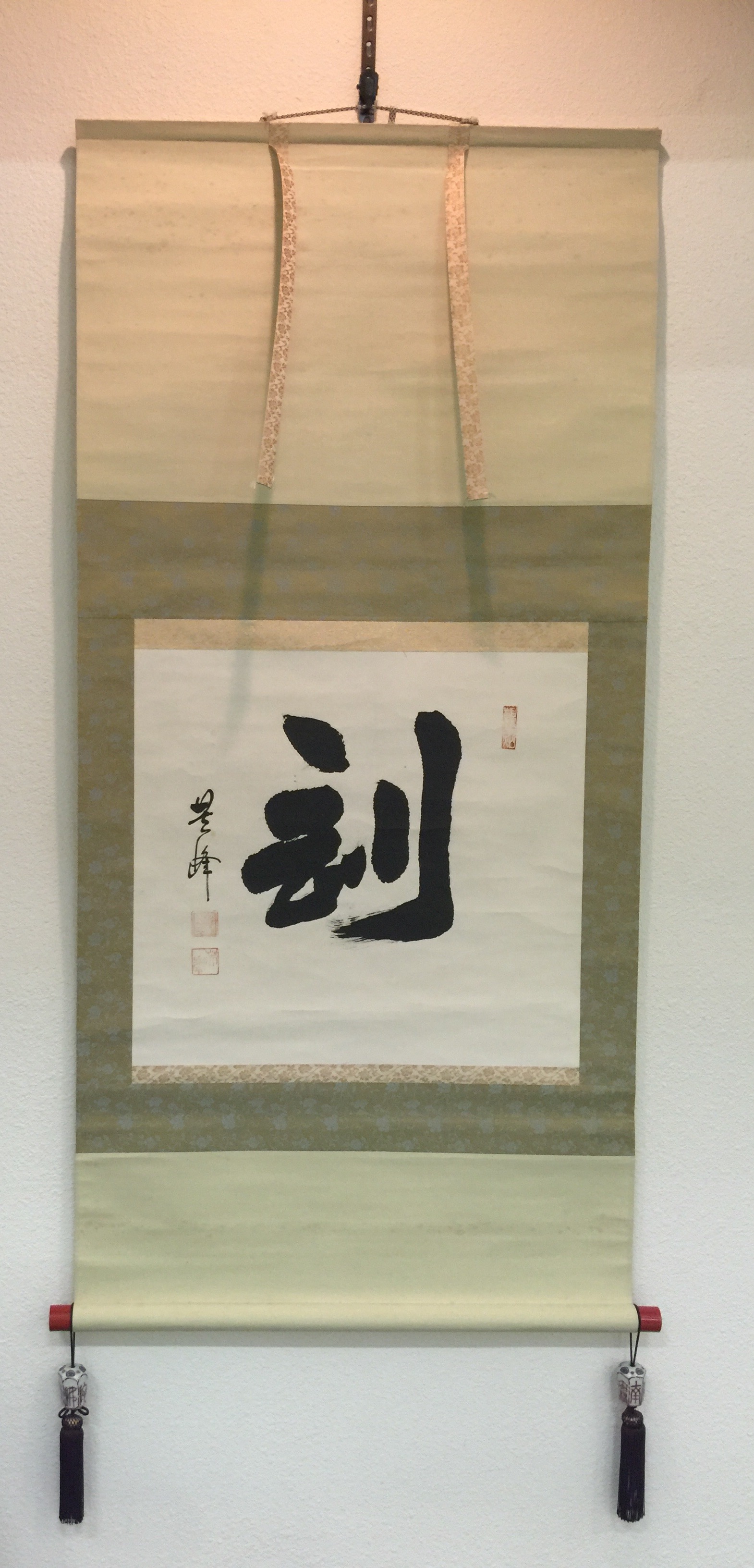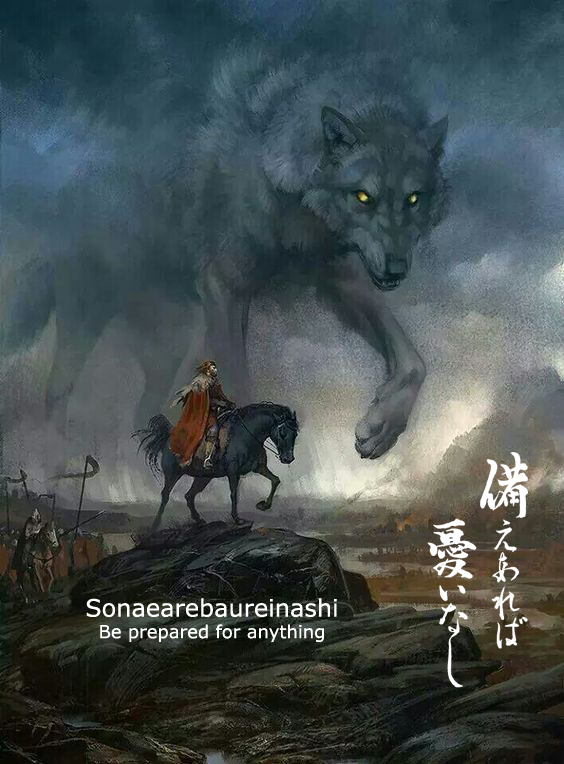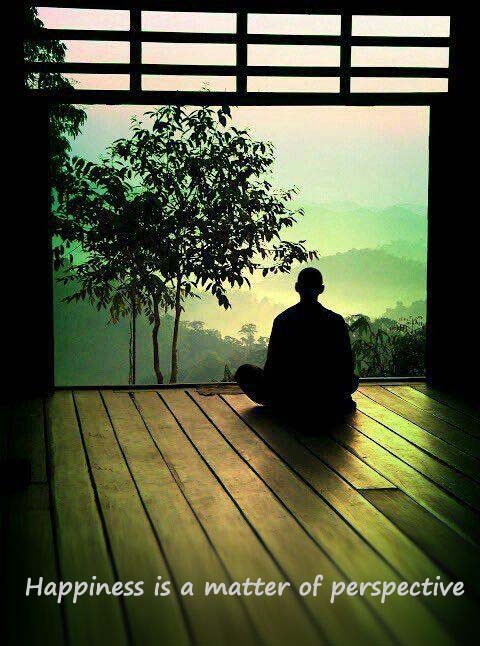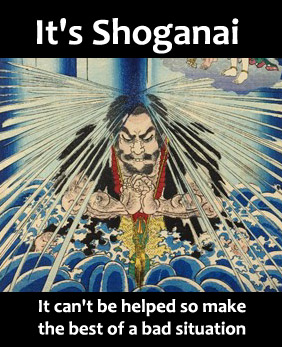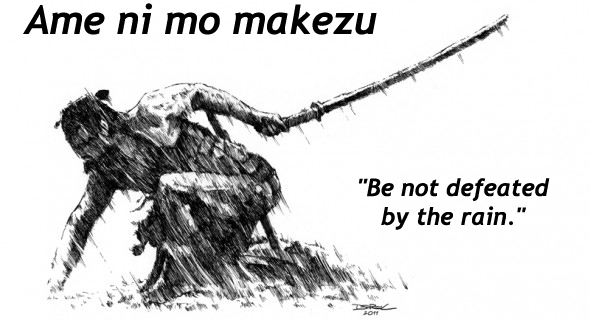 Today in Los Angeles it is raining and rain has the precarious ability to drive Angelenos crazy. It seems as just the thought of rain can cause people to lose their minds. Kind of indicative of 2016 and thus it has been one heck of a year.
Today in Los Angeles it is raining and rain has the precarious ability to drive Angelenos crazy. It seems as just the thought of rain can cause people to lose their minds. Kind of indicative of 2016 and thus it has been one heck of a year.
With the rain and all that has happened in 2016, it reminds me of Ame ni mo makezu, a poem written by Kenji Miyazaki. Ame ni mo makezu translates as "Be Not Defeated By the Rain." Here is the poem translated by David Sulz below:
Be not defeated by the rain, Nor let the wind prove your better.
Succumb not to the snows of winter. Nor be bested by the heat of summer.
Be strong in body. Unfettered by desire. Not enticed to anger. Cultivate a quiet joy.
Count yourself last in everything. Put others before you.
Watch well and listen closely. Hold the learned lessons dear.
A thatch-roof house, in a meadow, nestled in a pine grove's shade.
A handful of rice, some miso, and a few vegetables to suffice for the day.
If, to the East, a child lies sick: Go forth and nurse him to health.
If, to the West, an old lady stands exhausted: Go forth, and relieve her of burden.
If, to the South, a man lies dying: Go forth with words of courage to dispel his fear.
If, to the North, an argument or fight ensues:
Go forth and beg them stop such a waste of effort and of spirit.
In times of drought, shed tears of sympathy.
In summers cold, walk in concern and empathy.
Stand aloof of the unknowing masses:
Better dismissed as useless than flattered as a "Great Man".
This is my goal, the person I strive to become.




